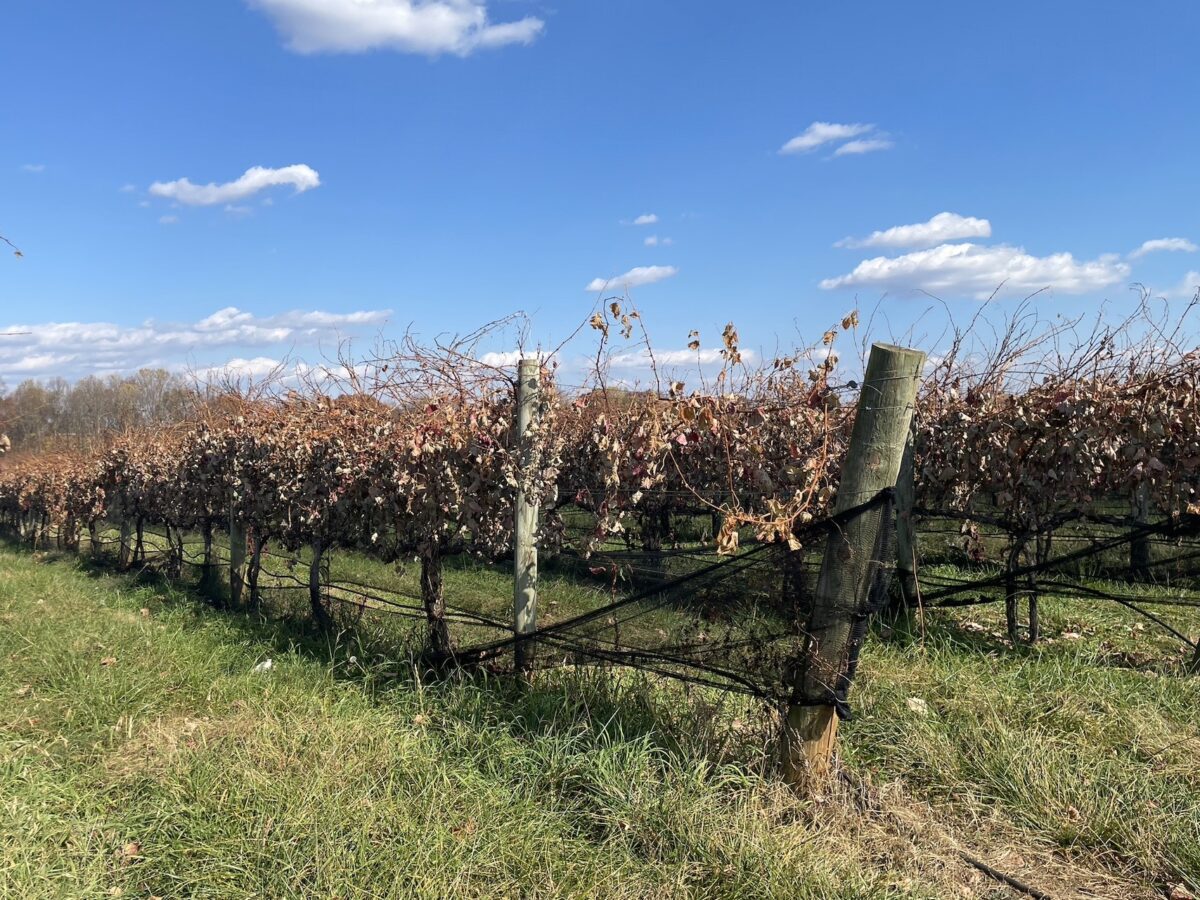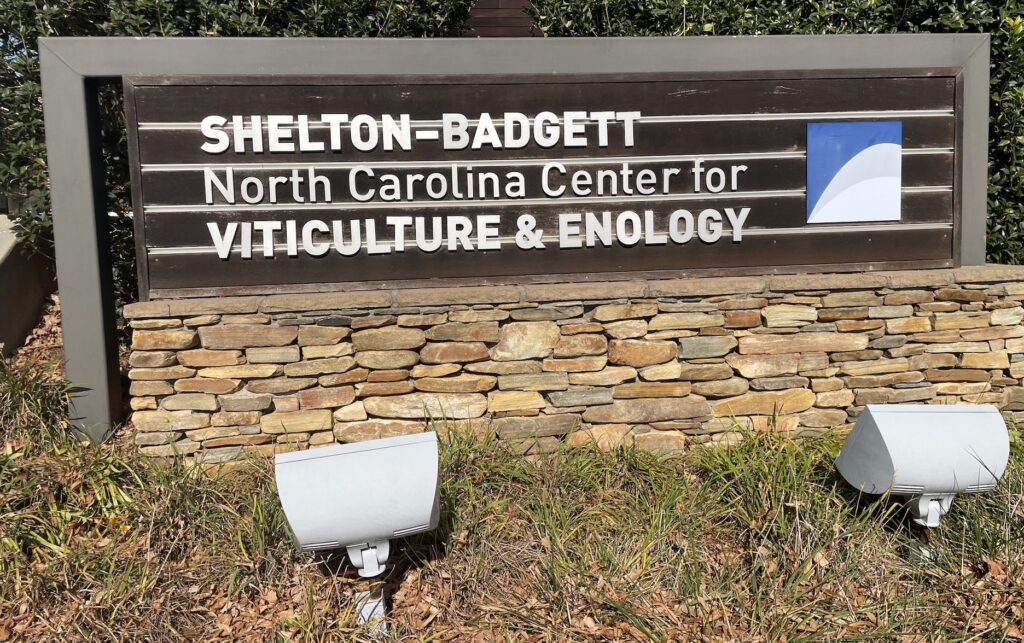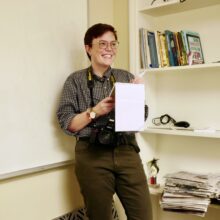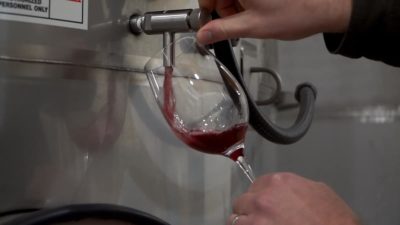
|
|
Each person has their own tastes — a notion taken quite seriously by David Bower, Surry Community College’s instructor of enology, the study of wine.
Bower said people from different backgrounds and experiences develop diverse palates; however, the wine industry often uses Eurocentric terminology. Centering a limited world view when learning about wine could create exclusion and take away space from someone using their own sensory language, he said.
What is Bower’s solution to make the study of wine a more inclusive space? Simply to listen to and incorporate students’ unique and diverse perspectives.
On Nov. 9, Surry Community College hosted the annual Southeastern Grape and Wine Symposium at the college’s Shelton-Badgett North Carolina Center for Viticulture and Enology.
Bower said the event is designed to bolster collaboration and discussion within the wine industry in North Carolina and the southeast, while also providing an opportunity for Surry Community College students in enology and viticulture (the cultivation and harvesting of grapes) and the opportunity to meet and make connections with industry professionals.
“The best way to make good wine, grow great grapes, and to, I think, be better in the wine business is through collaboration,” Bower said.
Many professionals at the symposium were graduates of Surry Community College’s viticulture and enology program, Bower said.
Promoting diversity in the wine industry
One of the many topics addressed at this year’s symposium was promoting diversity, equity, and inclusion (DEI), especially for wine industries and their branding and events.
Crista Guebert, co-owner of Golden Road Vineyards, was one of the symposium’s featured speakers on DEI, and emphasized the impact diversity within the wine industry can have on reaching diverse consumers.
“People buy wine from people that look like them,” Guebert said.
Also, having a diverse workforce can make for a better overall customer experience, she added.
“If you start to say, ‘Now we can enhance the experience for everybody, there’s room in this industry for everybody,’ then that’s exactly what you’re looking for here,” she said.
Guebert said school is a great place to start when making space for diverse groups of people in the wine industry.
Sarah Bowman, instructor of viticulture at Surry Community College, said the school also works toward inclusion by meeting students where they are and teaching to all levels.
Bowman said they are always looking for the next generation of grape growers and winemakers, but that isn’t limited to a specific age.
“We’re open to anybody who wants to improve their skill set, increase their knowledge, fill their knowledge gaps,” Bowman said.
There’s also plenty of room for inclusion when it comes to grapes, Bowman said. There remains some stigma around certain grapes, but there is a rich variety of different kinds of grapes from various origins. North Carolina also boasts a diverse climate, she said.

Winemaking and grape growing as workforce development
One of the primary roles of Surry Community College’s viticulture and enology program is workforce development, Bowman said.
A recent economic impact report revealed Surry Community College’s service area received $116,700 in added income in fiscal year 2019-20 thanks to alumni of the viticulture and enology program. The report also found that students enrolled in this program earn a rate of return on their investment around 21.6% in their careers, compared to a U.S. stock market 30-year average return of 10.6%.
The college makes use of a teaching and demonstration vineyard on campus for students to grow and maintain grapes used to process and make wine in the campus winery. Hands-on learning is essential, according to Bowman.
“This is a fine place to make mistakes, learn as you go,” Bowman said. “That’s what it’s designed for. There’s a lot of different things like that we do in the vineyard that gives you the exposure to many of the different approaches to grape growing in this area.”
Surry Community College began its viticulture and enology program in 1997.
The program reaches students at Surry Community College from many ethnicities, ages, and walks of life, Bower said.
“Within the educational space, just being able to meet them where they are, in their past, from where they came from, and being able to build upon what they know, is part of all of this,” Bower said.



